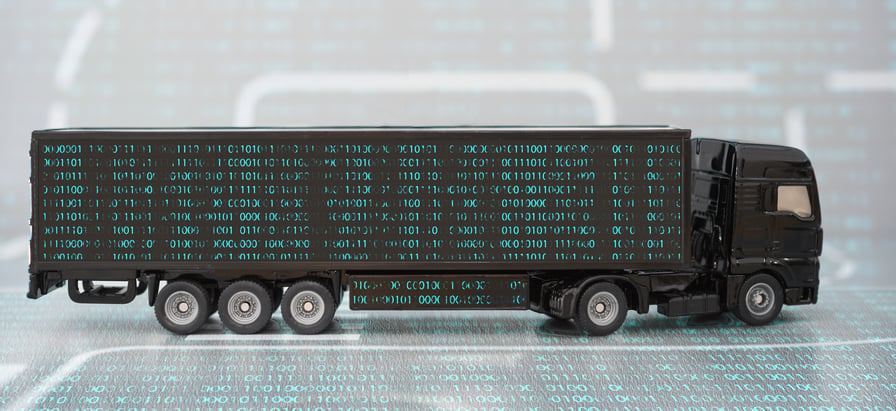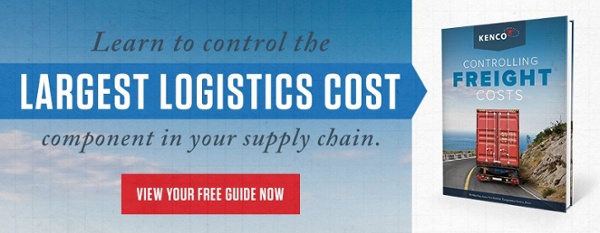
Automation has become an indelible part of daily life, encompassing the business world at every level. From automatic restock orders to warehouse-traversing picking robots, it makes many of the most monotonous parts of the supply chain faster, easier, and in some cases, safer.
So what's holding up freight?
Some freight practices remain curiously rooted in the past despite ever-increasing demand. The pressure of that demand has led to some out-of-the-box solutions crossing the radar, up to and including "uberization"––matching loads with a motor carrier provider in the most automated way.
Two questions inevitably arise when discussing the shift of freight handling toward a gig-based system:
- Is the approach viable in such a variable-ridden industry as freight movement?
There are definitely unique challenges facing companies championing uberization of freight. Fully automated freight has far greater needs than, say, a human being who just needs to get to a destination.
A better analogy might be a driver taking a passenger through a national immigration checkpoint, making sure their carry-on luggage was the correct size, checking the contents for hazards, loading the plane, and getting graded on how quickly the passenger arrives, regardless of external conditions.
That isn't to say it's impossible, but a certain amount of standardization needs to be built into any wide-scale approach, lest any one of those variables starts puncturing holes in an otherwise innovative solution.
It can succeed––and likely will succeed, given time––so long as there is some slack built in to take those variables into account.
- Isn't that what loadboards like DAT and Internet Truckstop already do?
There is a certain degree of passivity built into the loadboard approach: while it does reveal opportunities to both shipper and carrier, it requires a freight broker to connect the dots. So while the transparency is already in place, the effort required to find the client or provider takes away valuable resources we could allocate elsewhere in the business cycle.
The branded Uber Freight service, conversely, uses automation and algorithms to pair up candidates in the most efficient way––instantly and automatically.
While the existing algorithms show incredible promise, the most tantalizing aspect is the room they have to grow: virtually any parameters can be built into the matching system in the future. That means specialty needs (such as speed, temperature, handling, and licensing) won't get left out of the party with the industry on an automated upswing.
The Necessary Human Element in Automated Transportation
The surge to automate absolutely everything in the supply chain certainly has its appeal – automation is powerful and can be very cost effective.
In reality, though, the automation adoption scenario plays out much differently.
Consider real estate: for as long as buying and selling real estate has been a practice, you've had realtors and brokers at your disposal to facilitate the process.
However, with websites like Zillow and Redfin only a computer away, homebuyers can now do all their shopping and research from the comfort of their own home. So why do many still opt for realtors?
We can’t understate the comfort of face-to-face relationships, especially in a tech-saturated world that seems intent on snuffing them out.
Industry expertise, intuition, candid advice––there are as many reasons to work with a realtor as there are to continue working with a freight broker. In a recent article for JOC.com, William B. Cassidy notes while there are many venture-fueled "disruptor" startups nipping at the heels of freight companies, the relationship between a client, a carrier, and a broker isn't going anywhere anytime soon.

Will Fully Automated Freight Ever Be a Reality?
It will, but likely not as quickly as industry hype would lead you to believe.
It will take a decade or more to get it to a level of comfort that will satisfy the risk-averse, and even then, it will likely remain an option rather than the norm.
To put it another way, Amazon can innovate as much as it likes, but there are still some things even savvy consumers won't buy online: items that are incredibly specialized, too personal, or open to mislabeling and error.
Additionally, automation lends itself to a "set and forget" outlook, whereas freight does not. If a shipment needs to be re-routed, sped up, or turn back midway through a journey, the tendency of Uber-like platforms to buy and sell freight movement as if it were a simple commodity is going to cause issues.
Then, of course, there are special circumstances for us to consider: Hazmat needs, use of a liftgate, special handling instructions, liability, or the inevitable exceptions that tend to pop up with freight movements. These situations are still best handled by a freight broker until our automated technology accommodates for them.
To Sum It All Up
Are you concerned about the future of your freight practices in the face of automated options and "Uberization?" Get ready for the future by looking into and securing your overhead numbers with our Freight Costs guide.



